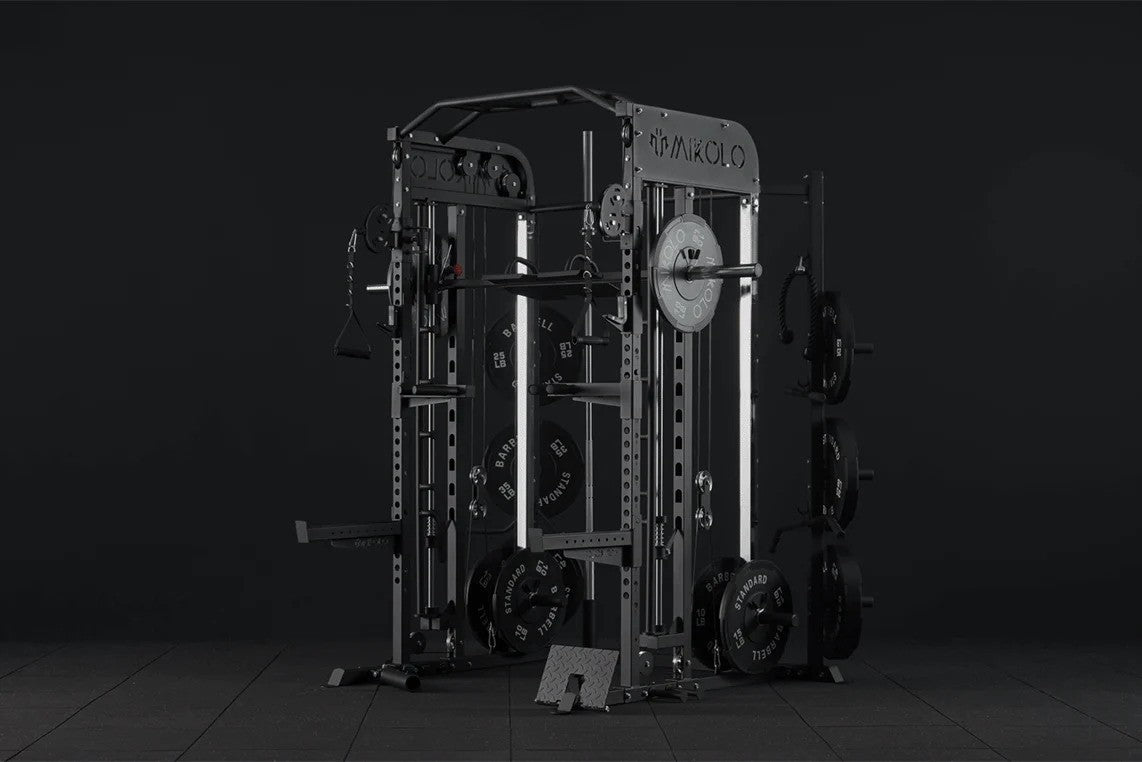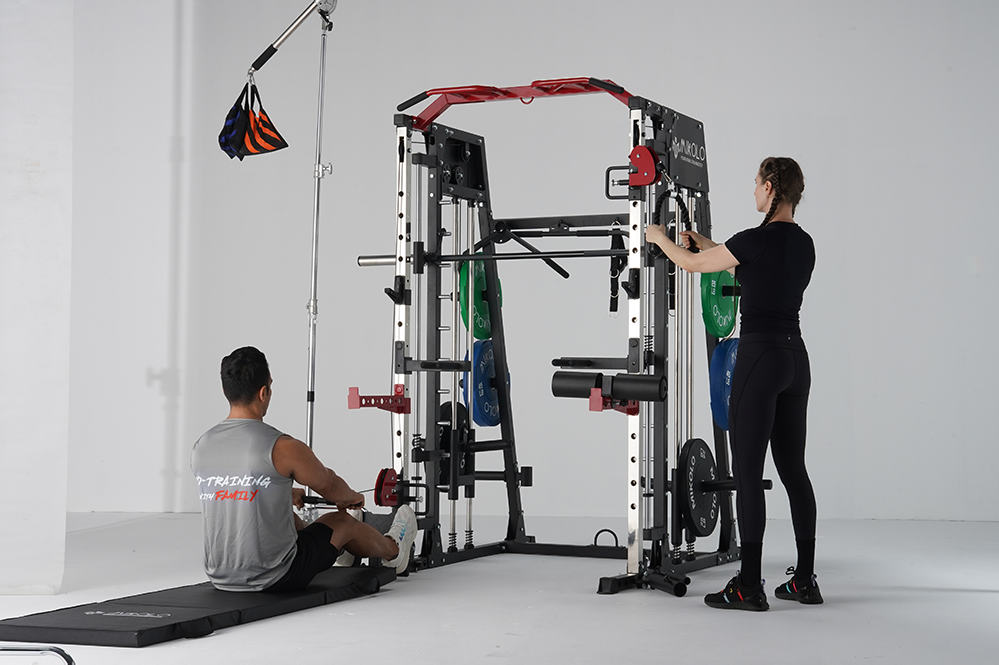When it comes to lower body training, Bulgarian split squats are lauded for their ability to build strength, enhance balance, and promote unilateral muscle development. Traditionally performed with free weights like barbells or dumbbells, some athletes consider transitioning to the Smith machine to address concerns about increasing weights and maintaining balance. This article delves into the potential benefits and drawbacks of making such a switch, helping you determine whether it's the right move for your training regimen.
Understanding the Current Routine
You're currently performing barbell Bulgarian split squats with a total weight of 55kg (121lbs) for 3 sets of 12 repetitions. According to your progression plan, an increase to 60kg is anticipated. However, the prospect of adding more weight brings about concerns regarding balance and safety, especially during unilateral movements like the Bulgarian split squat.
The Safety Concerns with Free Weights
As you increase the load on a barbell Bulgarian split squat, the risk of losing balance naturally escalates. Without a spotter, a misstep or momentary lapse in balance can lead to injuries, particularly to the lower back or knees. This apprehension is valid, especially when pushing beyond comfortable weight thresholds.
The Smith Machine Advantage
Safety and Stability: The Smith machine offers a guided vertical movement path, significantly reducing the risk of losing balance. This safety net allows you to focus more on muscle engagement without the constant worry of the barbell slipping or falling.
Progressive Overload: With the enhanced safety, you might feel more confident in incrementally increasing the weight, adhering closely to your progression plan without the accompanying fear of injury.
Potential for Increased Volume: Feeling more secure might encourage you to perform additional sets or repetitions, potentially accelerating hypertrophy and strength gains.
Potential Downsides of Switching to the Smith Machine
Reduced Stabilizer Engagement: Free weight exercises inherently require your body to stabilize the movement, engaging core and auxiliary muscles. The Smith machine, by providing a fixed path, diminishes the need for these stabilizer muscles, potentially leading to imbalances over time.
Limited Range of Motion: The fixed bar path might not accommodate individual anatomical differences, potentially restricting natural movement patterns and limiting the exercise's effectiveness.
Adaptation and Plateaus: Relying solely on machine-based exercises can lead to plateaus in strength and muscle development, as the body adapts to the assisted movement, reducing overall functional strength.
Weighing the Pros and Cons
Your primary concern revolves around safety and the ability to progress in weight without the fear of injury. The Smith machine undeniably offers a safer environment for lifting heavier weights, which can be beneficial for steady progression. However, it's essential to consider the trade-offs in terms of muscle engagement and functional strength.
Alternatives to Switching Completely
Use of Dumbbells: Transitioning to dumbbell Bulgarian split squats can offer a middle ground. While they still require balance, they allow for more natural movement patterns and engage stabilizer muscles more than the Smith machine.
Implementing Safety Measures: If you prefer to stick with the barbell, consider using safety racks or having a spotter to mitigate the risk of injury. Additionally, focusing on proper form and controlled movements can enhance safety during heavier lifts.
Incorporate Stabilizer Training: To compensate for reduced stabilizer engagement on the Smith machine, integrate complementary exercises that target these muscles. Planks, single-leg deadlifts, and core strengthening routines can help maintain overall muscular balance.
Expert Insights
Many fitness enthusiasts and experts advocate for a balanced approach. For instance, one seasoned lifter shared their transition to the Smith machine after a near-injury incident with free weights. They noted a reduction in quad DOMS (Delayed Onset Muscle Soreness) and maintained significant muscle growth despite lowering the weight. However, they also cautioned about the risks of blacking out and emphasized the importance of safety locks and controlled movements.
Another perspective highlights that while stabilizer muscles are valuable, their training shouldn't be the sole determinant in equipment choice. With proper programming, even machine-based exercises can be part of a comprehensive strength regimen.
Making the Decision
Ultimately, the choice between free weights and the Smith machine hinges on your individual goals, safety considerations, and willingness to engage stabilizer muscles. If safety and progressive overload are your top priorities, the Smith machine offers undeniable advantages. However, if functional strength and comprehensive muscle engagement are equally important, maintaining free weight Bulgarian split squats with appropriate safety measures might be more beneficial.
Conclusion
Switching to the Smith machine for Bulgarian split squats can offer enhanced safety and allow for consistent weight progression. However, it's crucial to be mindful of the potential loss in stabilizer muscle engagement and the limitations in movement flexibility. A balanced approach, possibly incorporating both free weights and machine-based exercises, alongside dedicated stabilizer training, can provide a well-rounded strength training program. Always prioritize safety, listen to your body, and consider consulting with a fitness professional to tailor the best approach for your individual needs.











































Leave a comment
This site is protected by hCaptcha and the hCaptcha Privacy Policy and Terms of Service apply.